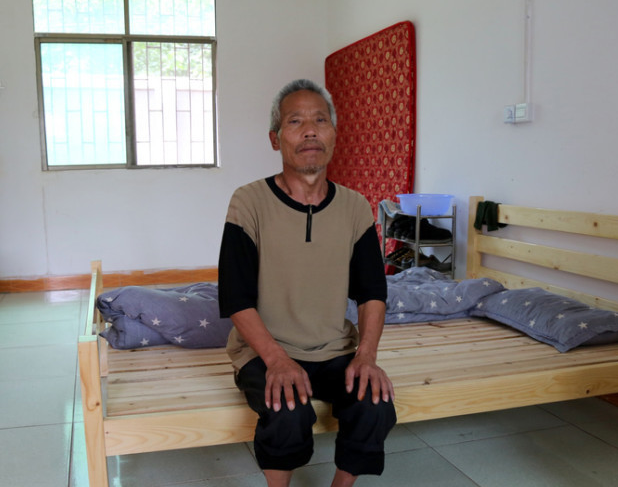(单词翻译:单击)
The 59-year-old, named Ma Jixiang, had gone missing in 2009 and was confirmed by police in 2012 to have been killed in a traffic accident, reported the People's Daily Online. His family had cremated the dead body, which was believed to be his, before burying the ash at the village of Tanjialong in Xiangtan county, Hunan Province.
据《人民日报在线》报道,今年59岁的马吉祥,曾于2009年失踪,并于2012年由警方宣布死于一场车祸。家人对他的死深信不疑,并将其尸体火化,葬在了湖南省湘潭县谭家垅村。
Before the cremation, five of Mr Ma's family members went to the funeral house to identify the body. They thought the body looked 'quite similar' to Ma Jixiang.
在火化前,马吉祥的5个家人来到殡仪馆认尸,他们认为那具尸体看起来和马吉祥“非常像”。
The village family had spent thousands of Yuan (hundreds of pounds) building the luxurious graveyard for Mr Ma, complete with handrails, totems of dragons and phoenixes and two golden lions, hoping he could live well in his afterlife.
这户村民耗费了数千元(数百英镑)来为马吉祥修建了一座豪华的墓地,配有栏杆和雕龙画凤的图腾,还有两只金狮子,希望马吉祥死后能够过得好。

On December 22, 2015, Mr Ma's family were stunned when the 59-year-old was taken back to his home by officials of the village of Tanjialong.
然而在2015年12月22日,当59岁的马吉祥被谭家垅村办事人员领回家时,全家人都惊呆了。
The man had been kidnapped and sold to an illegal brick factory to do hard labour, according to China's Democracy and Law Times. He had been forced to work in the factory for three years before being released due to his weakening health and inability to undertake heavy work, the report said.
据《民主与法制时报》报道,他是被绑架了,并被卖到了一个黑砖窑里做苦工。该报道称,马吉祥在那个黑砖窑里被迫劳动了三年,后来由于他身体虚弱、不能再从事重体力劳动才被释放。
Mr Ma had been homeless for 'a few months' on the streets of Hengyang in Hunan Province, according to his own accounts. He was later taken to a shelter to which Mr Ma recited his registered home address.
据马吉祥自己所说,他找不到回家的路,已经在湖南省衡阳市流浪了好几个月。随后他被带到了一处收容所,并背出了他家的地址。
The shelter contacted the official of Tanjialong village who arranged him to be taken home. Mr Ma has been arranged by his village to stay in a local care home.
收容所联系了谭家垅村政府,后来该村政府安排人手将马吉祥接回了家。现在马吉祥被村委会安排住在当地一家养老院里。
It remains unclear why the local police had decided to declare his death in 2012, especially because the DNA report did not confirm his identify directly.
目前还不清楚为何当地警方在2012年的时候决定宣布马吉祥死亡,尤其是在那份DNA检测报告不能够直接证明马吉祥身份的情况下。
While Mr Ma's family slowly came to accept the reality, they felt greatly humiliated for having laid to rest a family member who was still alive - a taboo for families in rural China. Mr Ma's nephew said if it wasn't for the fact that they had been given false information by the authority, they wouldn't have cremated and buried a living cousin.
尽管马吉祥的家人慢慢地接受这一事实,但是他们仍然因为给活人下葬而感到极大的羞辱--这是中国农村家庭的一个禁忌。马吉祥的侄子表示,如果不是因为政府给了他们错误的信息,他们不会火化那具尸体并为活人下葬。
On February 7, 2016, Mr Ma visited 'his own' graveyard to commemorate the fourth anniversary of death of the road accident victim, who remains unidentified.
今年2016年2月7日,马吉祥祭拜了“他自己的”坟墓,以纪念那名因交通事故而死去受害者的四周年忌日,目前那人的身份仍未被查明。


